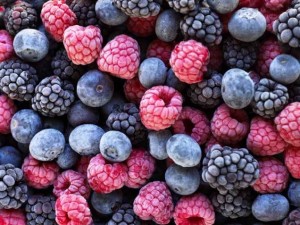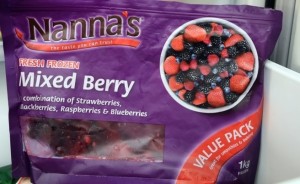Hepatitis A is a pretty nasty foodborne virus, often leading to long term liver issues. According to the Daily Mail, one of the folks in a cluster of hep A illnesses linked Chinese-grown berries in Australia is speaking out.
Trudie Sims, from Ballarat in Victoria, had been using Nanna’s frozen berries in smoothies until Sunday evening, when she was alerted to the health warning which had been issued.
‘I’m really angry … (and) it’s absolutely terrified me’, Ms Sims told Daily Mail Australia.
So far four cases of hepatitis A have been confirmed in Queensland, three in Victoria, and two in New South Wales. Ms Sims’ case could take the national toll to ten.
‘Over the last two to three weeks I’ve been getting quite sick and I just thought it was a flu,’ Ms Sims revealed.
‘Last night I just couldn’t really swallow anymore and I was going to make a frozen drink like I have been for the last four to six weeks,’ she added added.
After her partner Trevor alerted her to the health warning which had been issued when he saw Ms Sims with a packet of Nanna’s berries – he rushed her to hospital.
Since her admission her eyelids have turned yellow and she is exhibiting signs of jaundice.
‘I’m massively jaundice and my liver’s pretty crappy and these are the first signs of hep A from the berries,’ Ms Sims revealed.
Though still awaiting the definitive results of her blood tests, Ms Sims said her doctor was almost certain she had hepatitis A, news which left her in tears.
The Ballarat woman said she feels betrayed by the food company, and claims she was misled over the origin of the product which she thought were Australian made.
‘I’m really angry’, Ms Sims said before adding ‘It’s disgusting. We’re in Australia – we have our own resources.’
She now faces at least a week of unpaid leave from her casual job, is on heavy antibiotics and can’t even kiss her partner.
Ms Sims said she was beside herself when she found out, especially since she and partner Trevor visited his sick mother in hospital just last week. She hopes that she did not pass on any virus.
And the import blame game has started.
Victorian Farmers Federation president Peter Tuohey said not all imported food adhered to Australia’s strict guidelines which were some of the best health and safety standards in the world.
Mr Tuohey urged consumers to always buy Australian made products but conceded identifying those products could be quite challenging.
‘I can only assume that this company is using Chinese berries because they are offering a lower market price,’ he told The Herald Sun. ‘Berries are certainly in season in Australia.’
He said that it was likely the berries were contaminated when they were first picked.
‘They may have been placed on the ground where rats and other vermin could have caused the problem,’ he said.
‘Unfortunately, Australian Customs don’t test every batch, they only check a certain percentage of shipments.’







